The year 2024 is the year of father Avgustyn Voloshyn in Transcarpathia. This renowned Transcarpathian figure is often commemorated in the spring, particularly on March 15, the day when Carpatho-Ukraine declared its independence in 1939, and March 17, the birthday of Avgustyn Voloshyn, who was elected its president. He stands as a symbol and exemplar of priestly service, embodying both profound spiritual and intellectual virtues. Voloshyn’s esteemed reputation was well-established long before the pivotal events of March 1939. By the early 1920s, he was already regarded as a national leader and a guide for the people of the “Silver Land”, both in Ukraine and in European countries with Ukrainian communities. The life journey of this remarkable and multifaceted individual—priest, teacher, scholar, and politician—was arduous but filled with momentous events.
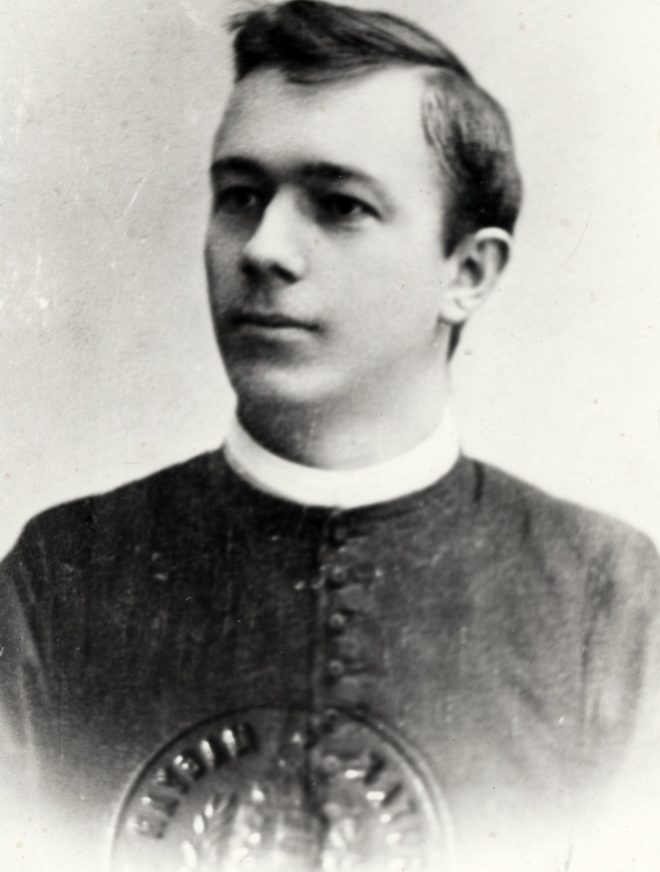
Avgustyn Voloshyn in the 1890s, wikipedia.org
A Boy Born in Kelechyn Named Avgustyn
“I was born in the village of Kelechyn. Kelechyn is my home. This village is nestled near Mount Beskyd in the Maramorosh region. It is encircled by high mountains and dense forests. A small river meanders through the village, accompanied by a road that runs alongside it. There are about a hundred houses in the village. They are constructed of spruce wood and are mostly thatched with straw. There are some dilapidated huts as well. In the middle of the village stands a red brick church, and nearby is the priest’s house, visited by my beloved spiritual father and my dear mother, where I was born, and where I received my first lessons. That is why I always fondly and gratefully remember this sacred place, my entire native village, and all its inhabitants”? – this is how Avgustyn Voloshyn recalled his childhood home in his essay “My Family,” published in Uzhhorod in 1923.
His grandfather Ivan was the first in his family to become a priest in the village of Velyki Luchky. His father Ivan followed in his footsteps and was ordained in 1867. Before this, he married Emilia Zombori, and they soon moved to a charming highland village nestled in the Repynka River valley, 18 kilometers from Volovyi. (now the village of Mizhhiria). Apart from a boy born in 1874, named Avgustyn, the family had three daughters: Olha, Olena, and Eleonora.
After finishing the village school in Kelechyn, his father took him to the Uzhhorod Gymnasium. However, the young boy from the highlands was admitted only a year later, after he learned the state language, which was Hungarian at the time. Starting in 1883, his gymnasium life lasted for nine years. In 1892-1893, he pursued theological studies at the Uzhhorod Theological Lyceum. As a gifted student, and thanks to the recommendations of Bishop Yuliy Firtsak, Voloshyn was admitted to the Department of Theology at Pazmán University in Budapest. Yet, a year later, he returned to Uzhhorod due to health reasons and completed his studies at the theological seminary.
In the diocesan library, young Avgustyn immersed himself in the works of Jan Comenius, Michel Montaigne, Johann Fichte, Jean-Jacques Rousseau, Herbert Spencer, Georg Hegel, Friedrich Herbart, and other renowned philosophers. He finished his studies at the Uzhhorod Theological Lyceum in 1896. A year later, Voloshyn received a diploma as a teacher for primary schools with Hungarian and Ruthenian (Ukrainian) as the languages of instruction, and in 1900 he obtained a diploma as a teacher for city schools. He continued to work as a teacher and later became the director of the teachers’ seminary in Uzhhorod.
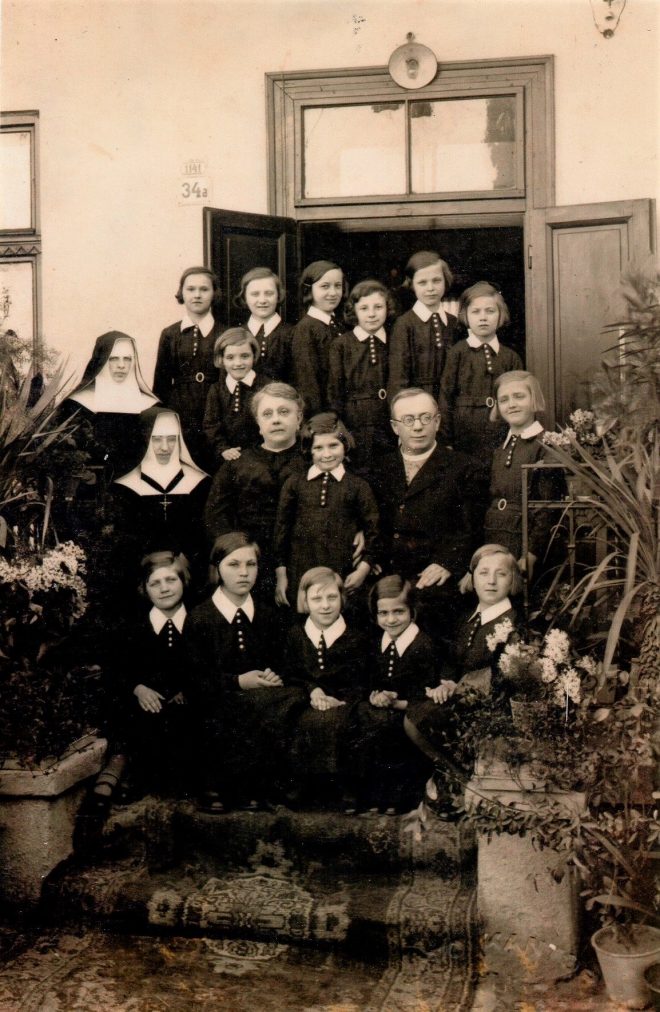
Avgustyn Voloshyn with his wife Iryna (seated in the center), nuns, and children outside the orphanage
Immediately after graduation, on November 24, 1896, Avgustyn Voloshyn married Iryna Petryk, the daughter of a gymnasium professor. Iryna became his faithful life partner. Born in 1878 in Uzhhorod, she did not consider herself a professional pedagogue, yet she significantly contributed to the development of education in the region. In 1909, together with Voloshyn’s sister Olha, Iryna opened the Marian Congregation of Greek Catholic Girls.
The school had a noble mission: to teach reading and writing, manual labor, catechism, church singing, cooking, baking, and the basics of hygiene in the home for infants and the sick. It was also to her credit that in 1921, Iryna Petryk initiated the creation of the Women’s Union, which conducted numerous educational and political activities in the region during the interwar period.
God did not bless the Voloshyn couple with children, so they took on the responsibility of running a private orphanage, donating their own home for this purpose in 1933. This act of generosity placed Iryna among the notable philanthropists of the Carpathian region. She also initiated the People’s Kitchen of the Women’s Union, which provided over 300,000 free meals for poor children in 1932-1933. Avgustyn Stefan, a student and close associate of Avgustyn Voloshyn, remembered Iryna Petryk fondly:
“This woman of medium height, plump round build, with brown hair and brown eyes, gentle and modest disposition, kind and frugal hostess, was hospitable and accepting…”
Iryna passed away prematurely on March 13, 1936, due to a malignant ear tumor. The memorial service was attended by many people. Following the loss of his wife, Avgustyn Voloshyn received numerous condolences from regional and national leaders, including Czechoslovakia’s President, Tomas Masaryk.
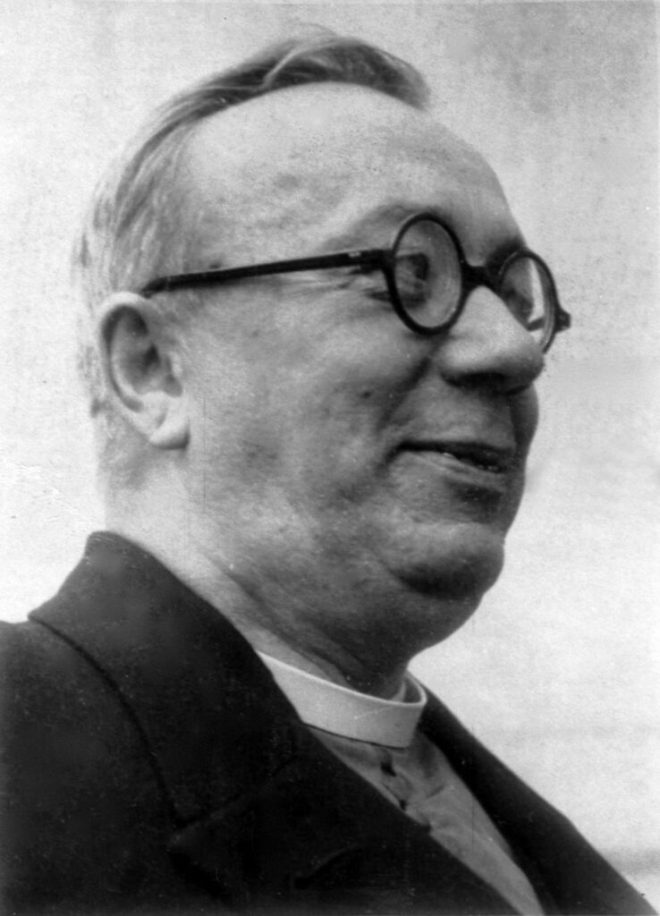
Father Avgustyn Voloshyn in the 1940s, tsdaea.archives.gov.ua
The Teacher in a Clergyman’s Cassock
But all this came later. In the meantime, on March 22, 1897, Avgustyn Voloshyn was ordained and became a chaplain of the Transfiguration Church in Uzhhorod. This church, where Voloshyn served for three years, was attended by about a third of Uzhhorod’s Greek Catholics.
In his book Father Avgustyn Voloshyn, Doctor of Historical Sciences Serhii Fedaka wrote:
“The beginning of Avgustyn Voloshyn’s pastoral ministry came at a time when the Greek Catholic priest in Budapest, Emil Mellesz, was struggling fiercely to translate services into Hungarian. The pro-government newspaper Pesti Györlop wrote on March 16, 1897: ‘We will first tame the people, and then, through peaceful culture, we will Magyarise them. We need to bury the whole region in Magyar books.’”
On November 1, 1897, Voloshyn began teaching at the Uzhhorod Teachers’ Seminary alongside his church service. He was a professor from 1900 to 1917 and served as the seminary’s director from 1917 to 1938. Initially, he had two hours of pedagogy classes every day. Over the course of his career at the seminary, he taught physics, mathematics, grammar, stylistics, pedagogy, didactics, logic, psychology, methodology, and more.
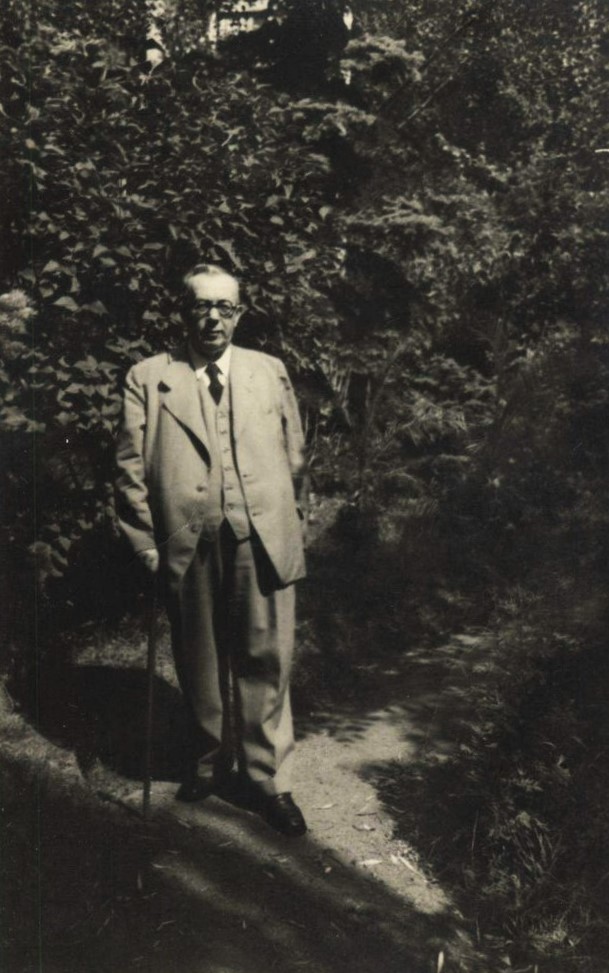
Avgustyn Voloshyn in the 1920s, localhistory.org.ua
Ukrainian researchers, Professors Mykola Vehesh and Stepan Vidniansky, in their book Avgustyn Voloshyn — Father of the Carpatho-Ukrainian People, note that “Avgustyn Voloshyn, as a Greek Catholic priest, defended the rights and freedoms of the autochthonous Slavic population of Transcarpathia and the interests of his national church by all means available to him. Despite the difficult historical conditions, he defended the traditional rite, played an important role in the campaigns to preserve the Church Slavonic language in church services, and maintained the Cyrillic alphabet in book publishing.”
The pastor and teacher, Voloshyn was one of the most prolific Transcarpathian authors. He collaborated with various publications and edited annual menologia such as Blahovisnyk, Nauka, Svoboda, and Nova Svoboda. He became one of the founders and shareholders of the Unio publishing house and bookshop. Voloshyn established himself as an outstanding teacher, active educator, publisher of books, newspapers, and magazines, as well as an excellent manager.
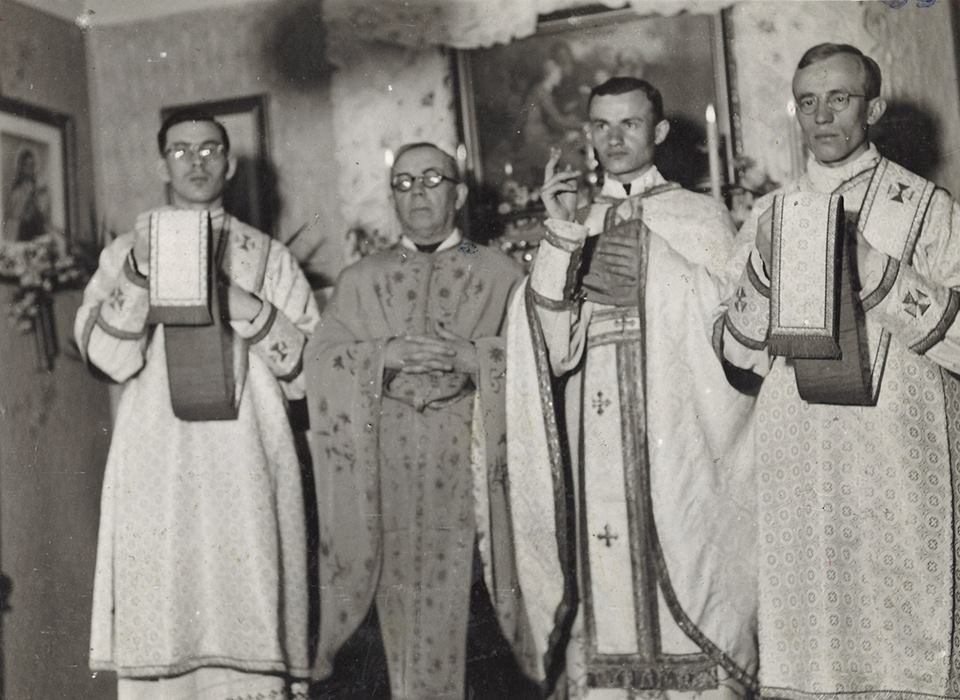
Father Avgustyn Voloshyn performs a liturgy. Prague, 1940s, 1939.in.ua
Avgustyn Voloshyn significantly advanced education in the region, as evidenced by the numerous textbooks he authored that were utilized by an entire generation of children. He wrote a total of 42 books, including: Methodical Grammar of the Carpatho-Ruthenian Language for Public Schools (1899), Short Russian Grammar (1899), Reading for Ugro-Ruthenian Youth (1900), Grammar: Mixed Magyar-Ruthenian Exercises (1907), Science of Numbers (I and II Classes of the Public School, 1919), History of Pedagogy for Teachers’ Seminaries (1923), and others.
Avgustyn’s fellow countryman, writer Vasyl Grendzha-Donskyi, recalled:
“Father Voloshyn’s greatest merit is that in those times of the greatest Magyarisation, he wrote and published books, school textbooks, and edited the almost only newspaper at that time, Nauka. Avgustyn Voloshyn, our greatest man of new times, did not seek a career, although his extensive knowledge, experience, abilities, and great achievements simply presented him with the highest merit.”
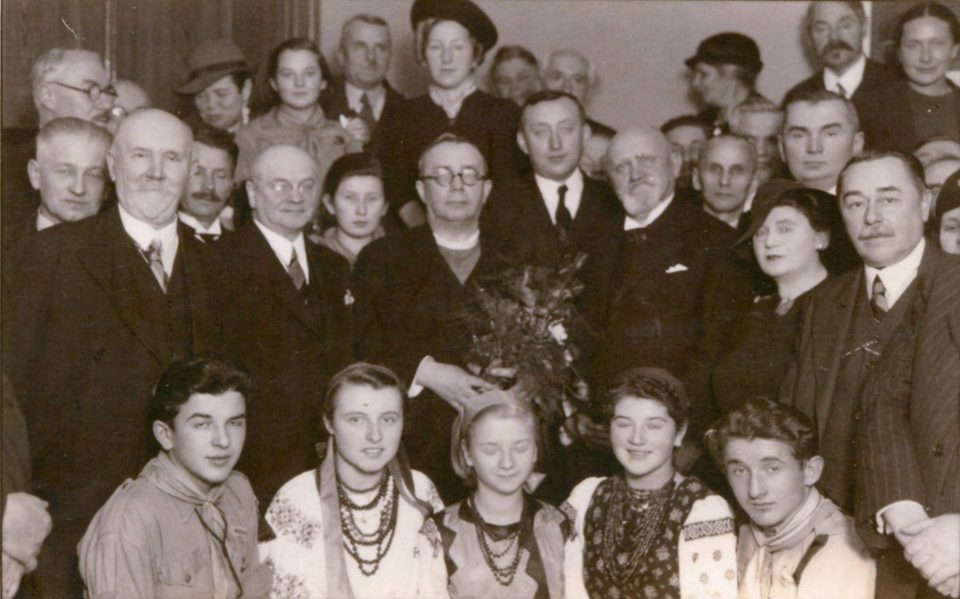
The Prime Minister of the Autonomous Government of Carpatho-Ukraine, Father Avgustyn Voloshyn, during the awarding of an honorary doctorate (honoris causa) at the Ukrainian Free University in Prague. October 30, 1938, 1939.in.ua
As early as 1904, Father Avgustyn Voloshyn defended the legitimacy of using the term “Ukrainian” in relation to his fellow Transcarpathians. Researchers who have written about his teaching and writing activities note that the clergyman always emphasized the distinctiveness of the Ukrainian language in Transcarpathia. To confirm this, Mykola Vehesh and Stepan Vidniansky quote his words: “We fight against Polonisms, against Russianisms or Magyarisms, but we do not fight against our native language itself, which is not to blame for not being able to develop freely on its native land.”
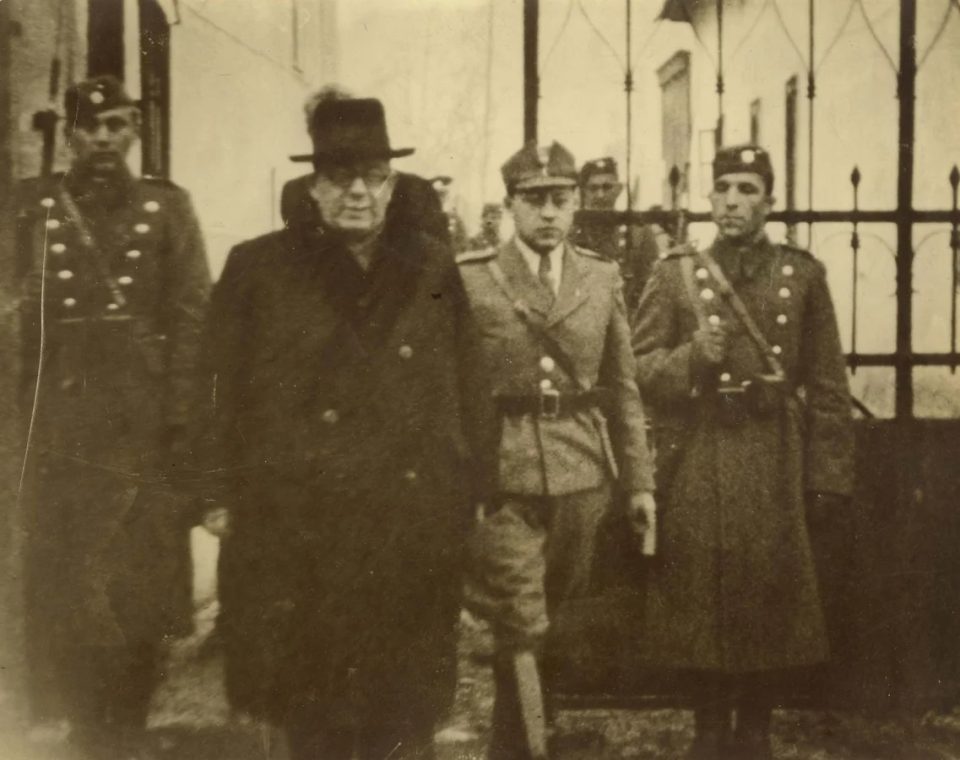
Avgustyn Voloshyn, President of Carpatho-Ukraine, 1939, Localhistory.org.ua
In addition, the intensified Czechization of Subcarpathian Rus in the 1930s posed a challenge to the Ukrainization of the region. In his book Avgustyn Voloshyn and the Establishment of the Literary Language in Carpathian Ukraine, philologist and professor Pavlo Chuchka wrote:
“Nowadays, it would not be an exaggeration to say that no other native of the region contributed as much as Voloshyn to the establishment of the Ukrainian literary language in Transcarpathia, especially in its teaching, to bring Transcarpathians out of the dead iazychie and to unify the all-Ukrainian literary norms in the field of vocabulary, grammar, and phonetics. No one else’s textbooks on language, mathematics, physics, pedagogy and other disciplines contributed to the introduction of Ukrainian scientific terminology as much as Voloshyn’s numerous guides and newspapers and journals did.”
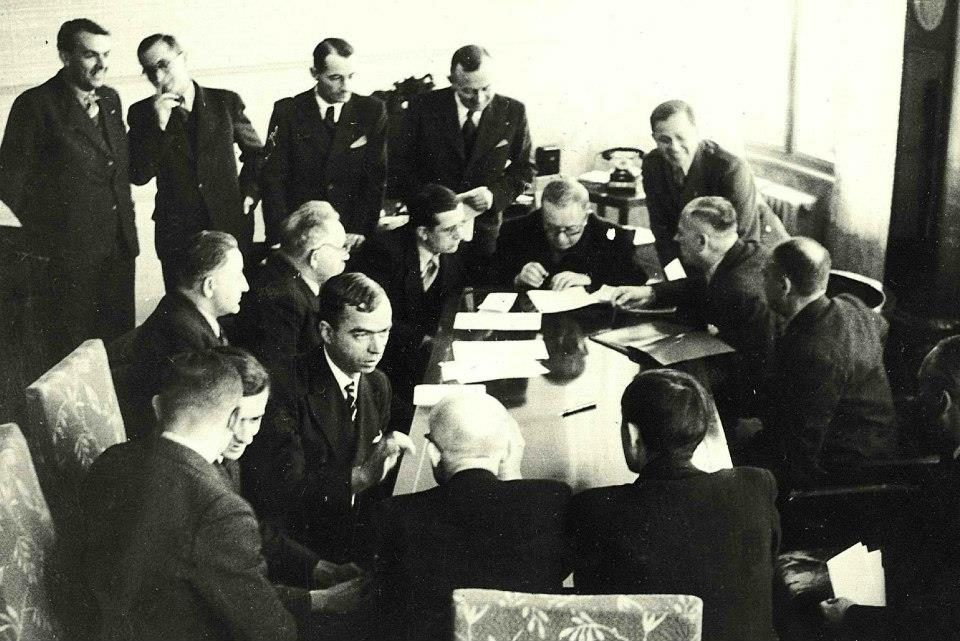
President of Carpatho-Ukraine Avgustyn Voloshyn (centre, wearing glasses) with the Council of Ministers, 1939
Transcarpathian Politics on the Geopolitical Terrain
In addition to his religious, educational, and literary activities, Avgustyn Voloshyn devoted significant energy to social and political work. During the geopolitical turmoil caused by World War I, big politics suddenly entered Transcarpathian region. The Transcarpathians themselves were completely inexperienced in this matter, and they had to quickly adapt, going through trials and learning from their own mistakes. Alongside others, Avgustyn Voloshyn trod this thorny path. He was directly involved in all the important political actions that took place in the region after the collapse of the Austro-Hungarian Empire.
When three political orientations of local figures emerged in Transcarpathia in 1918—towards Hungary, Ukraine, and Czechoslovakia—Voloshyn, as a politician, underwent a complex internal evolution. Initially, for tactical reasons, he supported the autonomy of the region within Hungary. Then, he sincerely sought unification with united Ukraine. Eventually, he accepted the only path that was realistically outlined for Transcarpathia at the time: incorporation within Czechoslovakia under the name of Subcarpathian Rus. In 1919, Father Avgustyn fully entered the realm of big politics by organizing the Christian People’s Party, which combined social slogans (defending the interests of the Ukrainian peasantry) with political ones, such as the struggle for granting autonomy to the Zakarpattia region.
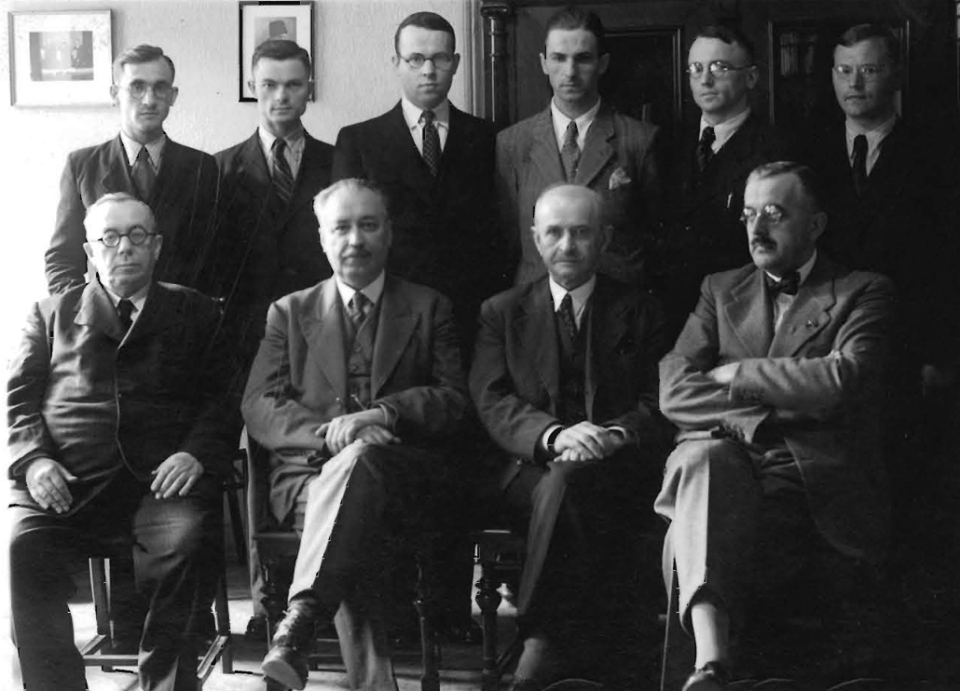
Avgustyn Voloshyn (seated on the left) among the faculty of the Ukrainian Free University in Prague, 1940s, 1939.in.ua
Avgustyn Voloshyn played a significant role in the economic revival of Zakarpattia, understanding that progress in this area was the basis for political independence and cultural development of the region. He actively promoted the creation of cooperatives and became the founder and chairman of the Regional Cooperative Union, the Subcarpathian Bank, the Beskyd Insurance Company, the Akord Bell Factory in Uzhhorod, the Helios Candle Factory in Horyany village, and the Chynadiyevo Match Factory, among others.
Voloshyn’s activities during the interwar period in Zakarpattia were impressive. His notable achievements include constructing the People’s House of the Prosvita Society in Uzhhorod and founding the first Ukrainian professional theater in Zakarpattia, the Rus’ Theatre of the Prosvita Society. He was also instrumental in the publishing efforts of Prosvita and the establishment of reading rooms throughout the region. Additionally, he organized educational congresses and events, especially for young people.
There was not a single educational event where Avgustyn Voloshyn did not deliver a vivid speech. No one else at the time was as popular or had such a tremendous influence on all segments of the Ukrainian population in Zakarpattia region.
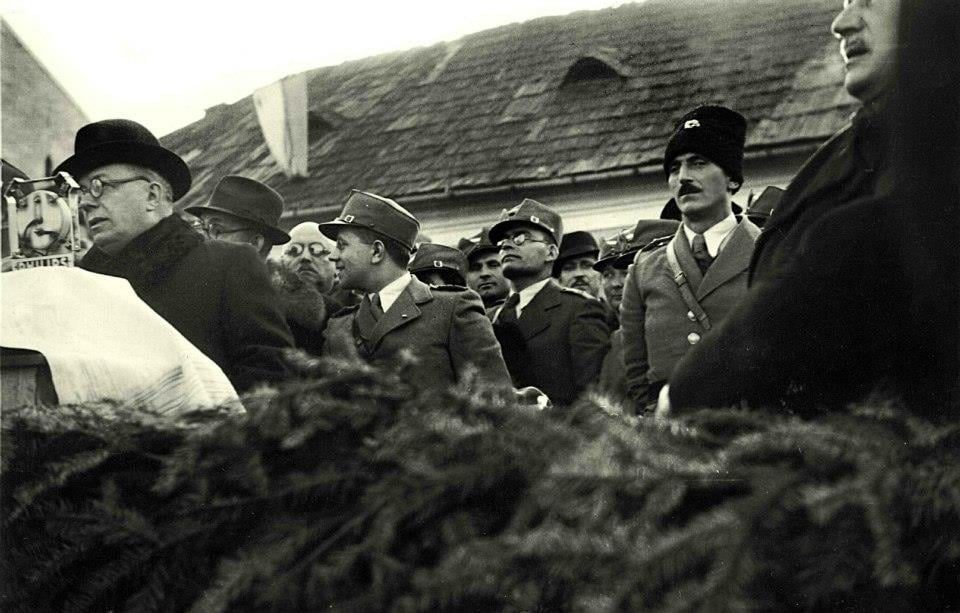
Avgustyn Voloshyn’s Speech in Khust, 1939
As a leader of his political force, Voloshyn was elected to the Czechoslovak parliament. Promoting the values of the party he organized, in 1938 he declared, “Our program is clear and precise. We do not wish harm on anyone; we want truth, law, and justice to prevail in our country! We want the biological policy of destroying everything Ukrainian to stop.”
Avgustyn Voloshyn’s political career peaked in 1938-1939. After the Munich Agreement, Czechoslovakia entered a period of severe political crisis and was eventually forced to agree to the creation of an autonomous government of Subcarpathian Rus. Initially, it was headed by the Magyarophile Andrej Brodi, with Voloshyn serving as state secretary. Soon, the Czech authorities arrested Brodi for his pro-Hungarian leanings, and Avgustyn Voloshyn became the new prime minister of the region, forming a government exclusively composed of supporters of the Ukrainian movement.
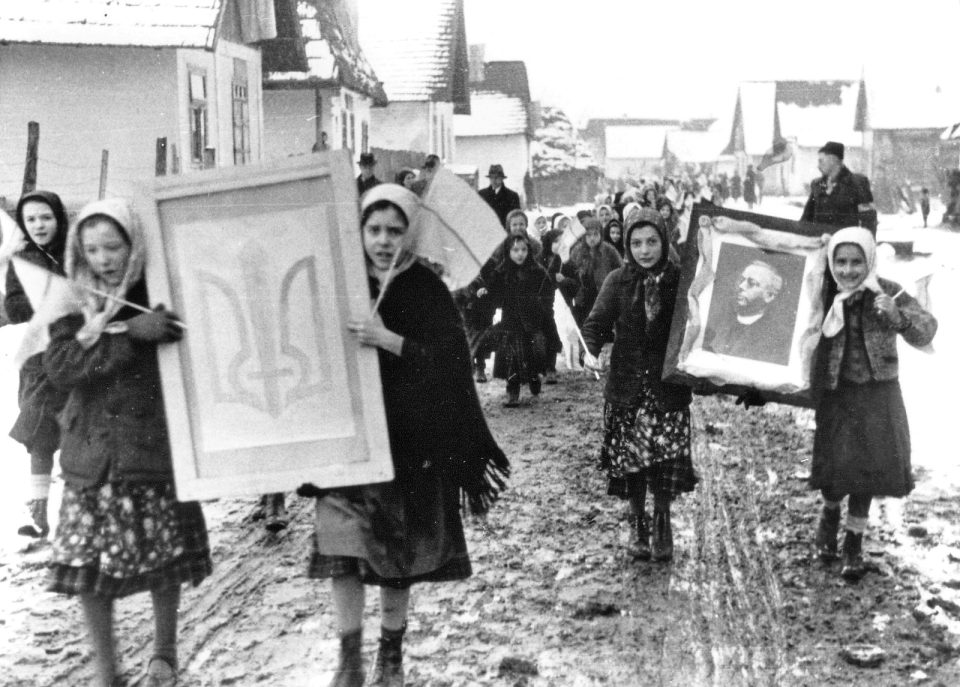
A rally in Khust on the occasion of the first-time election of a parliament for autonomous Carpatho-Ukraine, 1939
Voloshyn promptly declared his political stance, stating, “We believe that the great Ukrainian nation of 50 million will continue to assert itself and will not let our eternal enemies shackle and imprison us again.” In October 1938, Carpatho-Ukraine’s autonomy was declared, with Uzhhorod as its capital. At that time, local self-government was formed and the Carpathian Sich People’s Defence Organization was established in Khust to protect the region.
On the night of March 14, 1939, Carpatho-Ukraine was attacked by Hungary. On March 15, 1939, Czechoslovakia ceased to exist: Bohemia and Moravia were captured by German troops, and Slovakia declared independence, which was recognized by the Third Reich. The Czechs withdrew their troops from Carpatho-Ukraine to Slovakia and Romania.
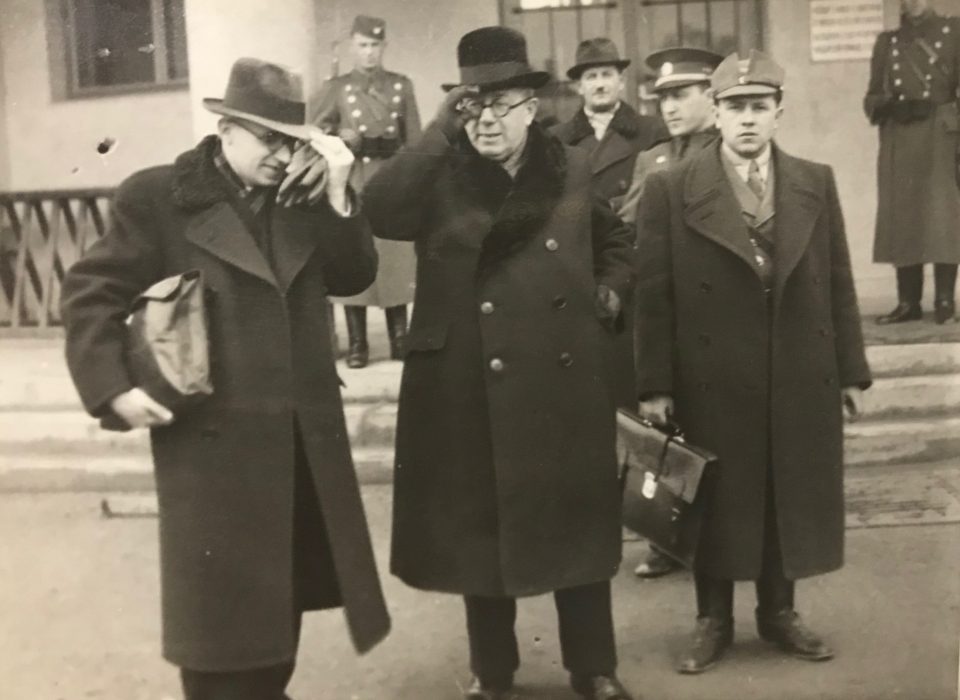
President Voloshyn leaving the State House in Khust, 1939. Photo by Kalenyk Lysiuk, uvan.org
The Last Liturgy in the Carpathians
Despite operating under extremely difficult conditions, including an unstable political and economic situation and the occupation of part of the Zakarpattia region by Hungary, Voloshyn managed to earn the respect and love of a significant portion of the population. Dozens of foreign journalists who visited Transcarpathia at the time wrote that the politician was a man suited to his role, and the Ukrainian people showed him such affection that they called him “the father of the people.
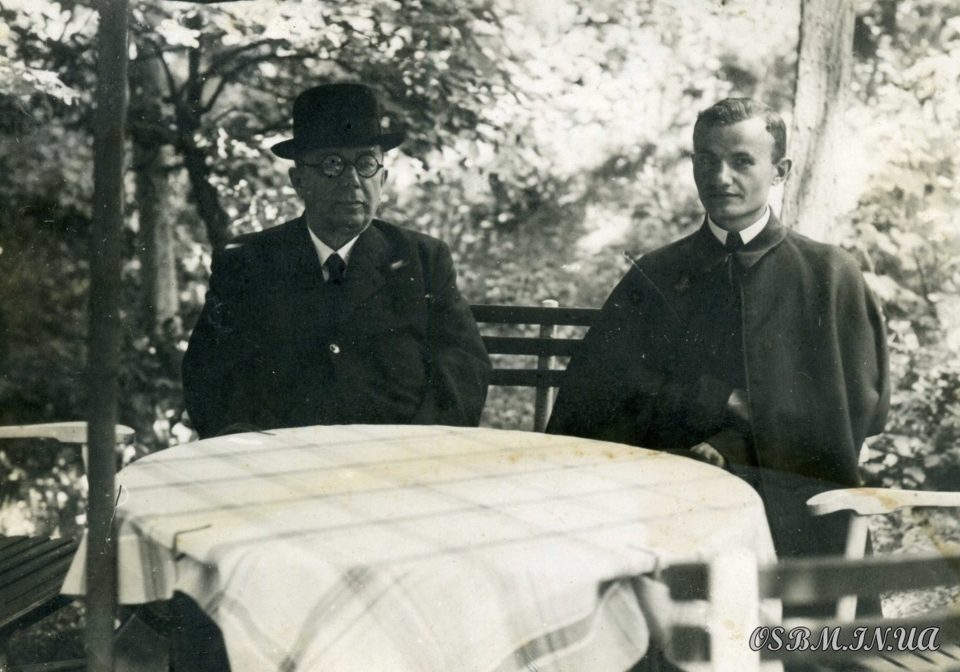
Priests Avgustyn Voloshyn and Anastasiy Kliuchyk in Prague, 1940s, Osbm.in.ua
On March 15, 1939, Carpatho-Ukraine declared its independence in Khust. During the first session of the Soim in the gymnasium, Avgustyn Voloshyn was elected president of the newly formed state. Ukrainian was declared the official language of Carpatho-Ukraine, the state flag was established as blue and yellow, and the state emblem featured a combination of the regional and national coats of arms. The national anthem was “Ukraine’s glory and will have not yet perished.” The general offensive of Hungarian troops, launched with Hitler’s permission, despite the heroic armed resistance of small units of the Carpathian Sich, put an end to the short-lived existence of an independent Ukrainian state in Zakarpattia region. The attack on the “one-day state,” as the English reporter Michael Winch metaphorically called Carpatho-Ukraine, ended on March 18 with its complete occupation and annexation by Hungary.
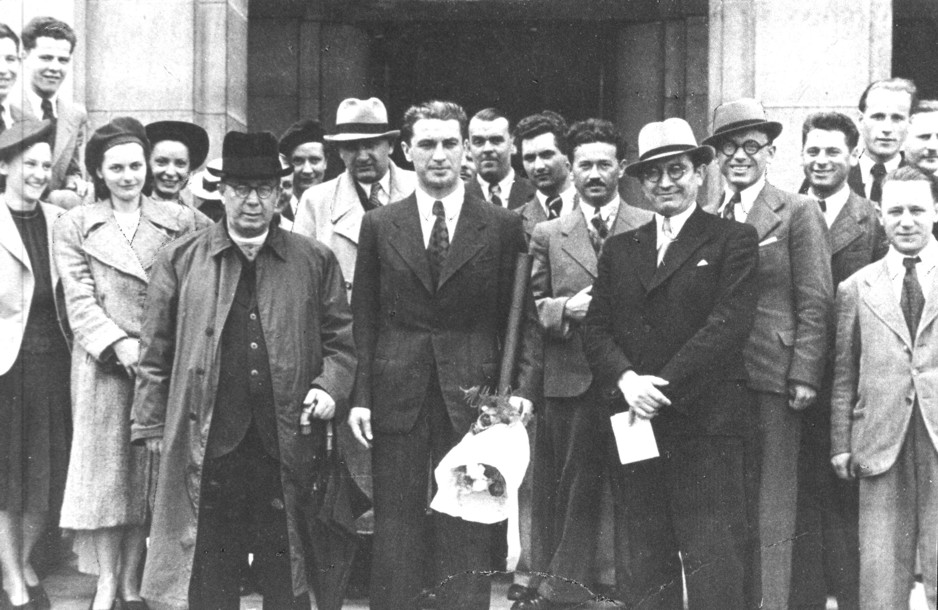
President Father Avgustyn Voloshyn, members of the government, and Vikentiy Shandor, Prague, April 1939, 1939.in.ua
At midnight on March 15-16, Father Voloshyn prayed for the last time in the chapel of his home in Khust. He would drive to Velykyi Bychkiv in the Rakhiv region the next morning. There, as a priest, he would celebrate the Sunday liturgy. Then, at the request of his companions, he would cross the border post on the Tisza River and leave for Romania. After brief wanderings in European countries and requests to the German authorities to support the Carpathian Sich, Avgustyn Voloshyn would find himself in Prague in May 1939.
The Czech capital remained one of the largest and most active centers of Ukrainian emigration in Europe until 1945. During World War II, Voloshyn stepped back from active politics and transitioned to teaching. In Prague, he taught at the Ukrainian Free University, actively engaged in literary activity, compiled textbooks, and devoted attention to attracting Ukrainian children to schools and gymnasiums. At the university, he progressed from professor of pedagogy and dean of the Philosophy Department to rector. In 1944, he wrote “My Testament.” In the spring of 1945, Avgustyn Voloshyn was detained by the Soviet military counterintelligence service SMERSH. Initially planning a special operation to kill the influential Ukrainian emigrant, they decided instead to take him alive.
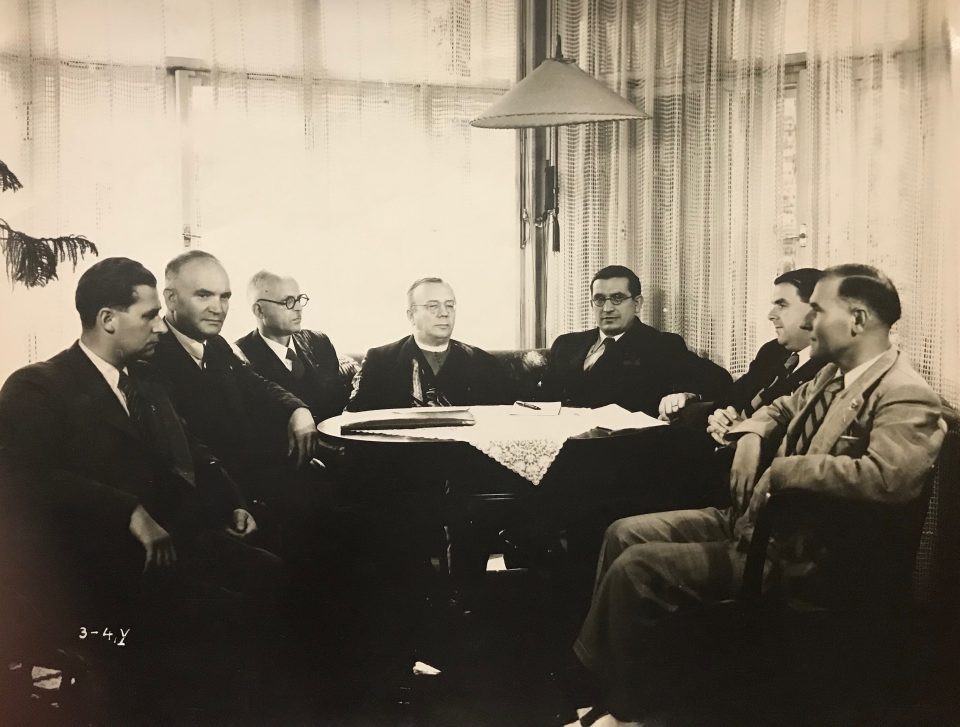
From left to right: film producer R. Myshkovych, president of the Dniprofilm Corporation K. Lysiuk, chairman of the Soim of Carpatho-Ukraine A. Stefan, president A. Voloshyn, minister Y. Revai, V. Komarynsky, head of the propaganda department, S. Dovhal, editor
Three graves of Father Voloshyn
The communist regime of the Soviet Union could not forgive Avgustyn Voloshyn for his devotion to the Ukrainian people, his commitment to the Ukrainian national idea, his patriotism, and his efforts to achieve Ukrainian independence. The charges brought against him in 1945 by the Main Directorate for Control Intelligence ‘SMERSH’ of the USSR State Security now seem utterly absurd. Despite never being a citizen of the Russian Soviet Federative Socialist Republic and never committing any acts on its territory, he was prosecuted under Articles 58-4 and 58-11 of the Criminal Code of the RSFSR. He was swiftly transported to Moscow as a “particularly dangerous criminal” and placed in solitary confinement in Lefortovo prison.
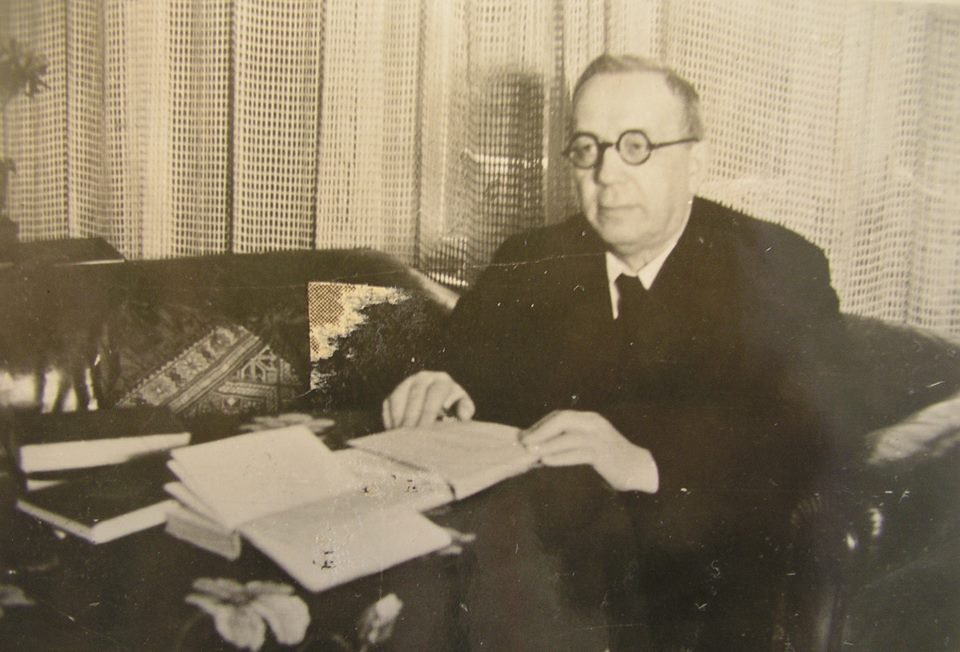
Avgustyn Voloshyn
Interrogations in the communist torture chambers of Moscow took a severe toll on the health of the already elderly, 71-year-old Avgustyn Voloshyn. The physical torture and psychological pressure he endured led to his transfer to the Butyr prison hospital in Moscow that summer. However, medical care could not save him. Voloshyn’s cellmate in Butyr prison, native of Zhytomyr region Volodymyr Marchuk, recalled: “Avgustyn Voloshyn was placed in solitary confinement with me… He was a short, plump man, over 70 years old. He had a sick stomach and could not eat. He gave me his food. Every day, Voloshyn told me about the life of Jesus Christ, about himself, and his journeys to Rome and Prague. I learned that Voloshyn met with Ribbentrop, Bandera, Melnyk… Avgustyn Ivanovych grew weaker every day. He could no longer even walk by himself. We took him under our arms and helped him walk… I will remember this kind and intelligent man for the rest of my life…”.
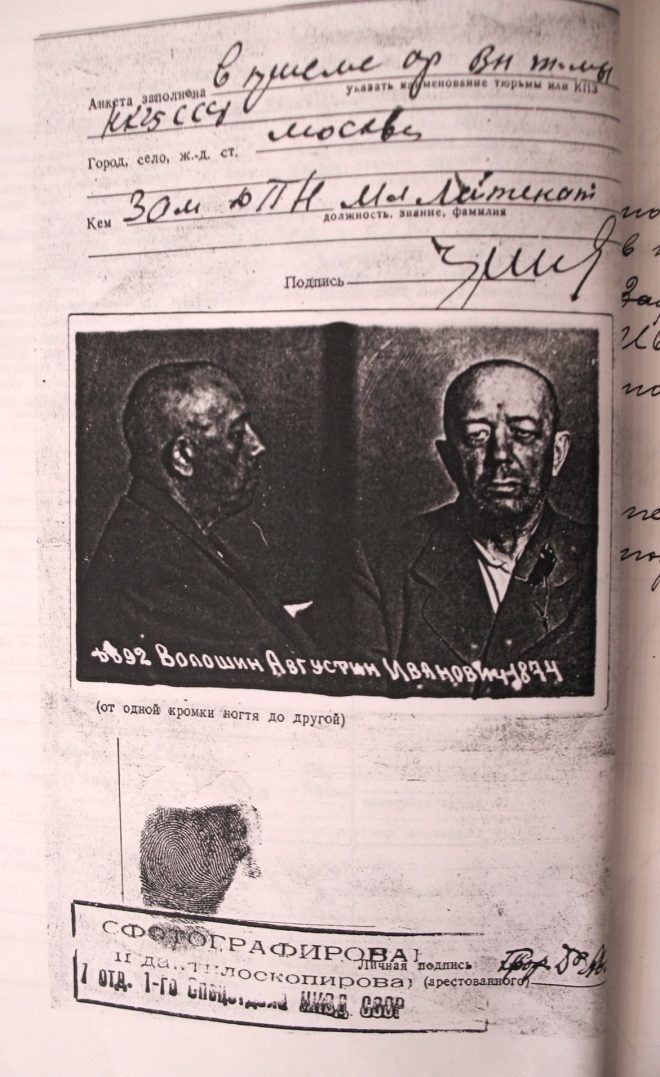
Page from Avgustyn Voloshyn’s criminal file, SBU archive
Medical examination report conducted by the Butyrka prison doctor on duty read:
“Avgustyn Voloshyn, born in 1874, who had been in the hospital since July 11, 1945, for decompression heart disease, kidney inflammation, and chronic colitis, was arrested and died of heart paralysis on July 19, 1945, at 3:20 PM.”
Thus, Avgustyn Voloshyn passed away, officially from heart paralysis, on July 19, 1945.
In his testament, the great patriot of Ukraine requested a modest funeral, “without secular parades.” He asked that icons with a crucifix and a plea to pray for Father Avgustyn Voloshyn be handed out during the burial. He wished to be buried next to his wife in Uzhhorod and, if “military or political circumstances” prevented this, to be interred wherever he passed away. The details of his burial remain unknown, but it is likely that he was laid to rest in a mass grave where Butyrka prisoners were buried. For many years, the fate of the president of Carpatho-Ukraine was shrouded in mystery, and his name was suppressed. The authorities spread a rumor that Voloshyn was hiding in Latin America. Only in the 1980s did some propaganda books mention his death.
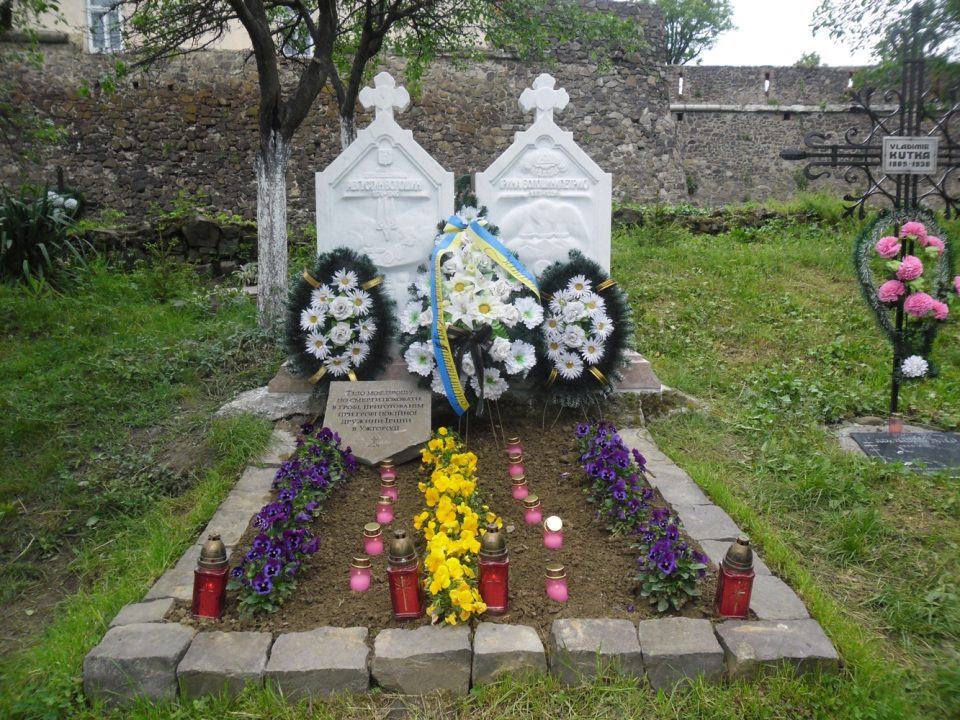
The symbolic grave of Avgustyn Voloshyn in Uzhhorod, zakarpattya.net.ua
There is no real grave of this great Ukrainian patriot — only two cenotaphs, symbolic graves. One is at the Olšany Cemetery in Prague, and the other one in Uzhhorod, near his wife’s grave (on the territory of the Skansen). In 2002, Avgustyn Voloshyn was posthumously awarded the title of Hero of Ukraine. The memory of this outstanding Ukrainian of Zakarpattia is gradually being restored. However, to fully honor him, much more needs to be done than has been accomplished so far.
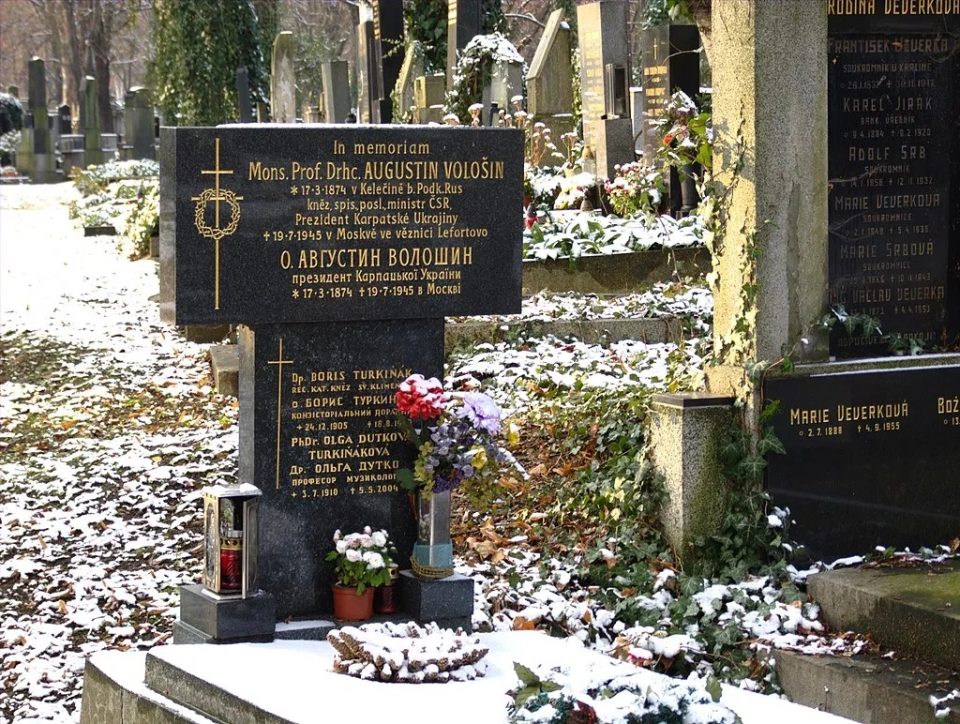
The symbolic grave of Avgustyn Voloshyn in Prague, Wikipedia
Mykhailo Markovych, specially for Varosh
This material has been prepared within the framework of the Dutch-Slovak-Ukrainian project ‘Strengthening the Rule of Law at the Local/Regional Level in Ukraine: The Case of Zakarpattia Region’, which is implemented with the support of the Government of the Kingdom of the Netherlands under the MATRA program, a leading Dutch initiative for social transformation support.

The project is being implemented by the Institute for Central European Strategy (ICES) in collaboration with the Dutch organization Foundation of Justice, Integrity and Anti-Corruption (FJIAC) and Transparency International Slovensko (TI SK), in partnership with the Zakarpattia Regional State Administration and the Regional Council.
Important: The content of this material does not reflect the official position or opinions of the project’s implementers or donors. The content of the publications is the sole responsibility of Varosh.

